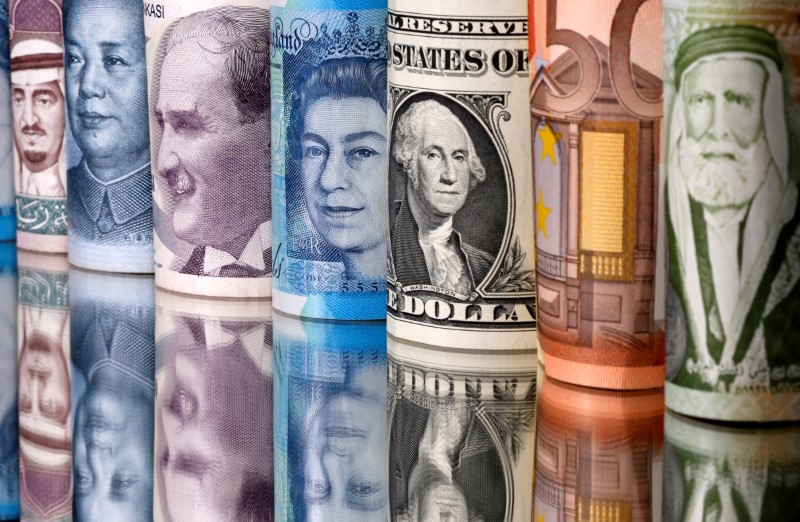
© Reuters
By Geoffrey Smith
Investing.com — The dollar was flat in early trading on Wednesday in Europe, with the markets becalmed ahead of the U.S. Federal Reserve’s policy decision later.
By 03:10 ET (08:10 GMT), the , which tracks the greenback against a basket of advanced economy currencies, was at $101.84, down less than 0.1% from Tuesday’s close. The was up 0.1% at $1.0875, while the was effectively flat at $1.2315.
The is expected to raise the fed funds rate by 25 basis points to a range of 4.50-4.75%, after a 50 basis point rise in December and three hikes of 75 basis points in the meetings prior to that.
The Fed has slowed the pace at which it is raising rates in response to evidence that the U.S. economy is slowing down and that the peak in inflation has passed: the has fallen for six months in a row now but is still more than three times the Fed’s target of 2%.
A 25 basis point hike would bring the fed funds rate above the core rate of – which is the Fed’s preferred measure of inflation – for the first time in the current cycle, finally fulfilling one of the definitions of a ‘restrictive’ monetary policy.
Analysts warn that the key event risk from the Fed meeting is that chairman Jerome Powell pushes back hard against increased speculation on a first rate cut later in the year. Powell and other Fed officials have repeatedly warned in recent weeks of the need to hold rates above 5% for some time in order to squeeze the inflationary pressure out of the U.S. economy.
“A push-back against a pivot and rate-cut speculation could hit risk assets and lift the dollar today,” ING’s Chris Turner warned in a note to clients. “We think that Fed Chair Jerome Powell and his colleagues simply have little interest in sending strong signals that they are indeed close to the peak, which only risks generating a premature fall in interest rates.”
The pound and euro are likewise trapped in pre-central bank mode, with the European Central Bank and the Bank of England both meeting on Thursday. data later are expected to be of limited impact, given that they will not include Germany, which has delayed publishing its figures due to a technical issue.
The is still expected to raise its Bank Rate by 50 basis points to 3.5%, despite a string of bleak economic data this week and another wave of public-sector strikes. Today’s strikes – expected to be the biggest in over a decade – will see some 200,000 public-sector staff from teachers to ambulance drivers walk out, demanding higher pay.
Earlier, mortgage lender Nationwide said its house price index fell for a fifth straight month, the longest sequence of declines since 2008.
